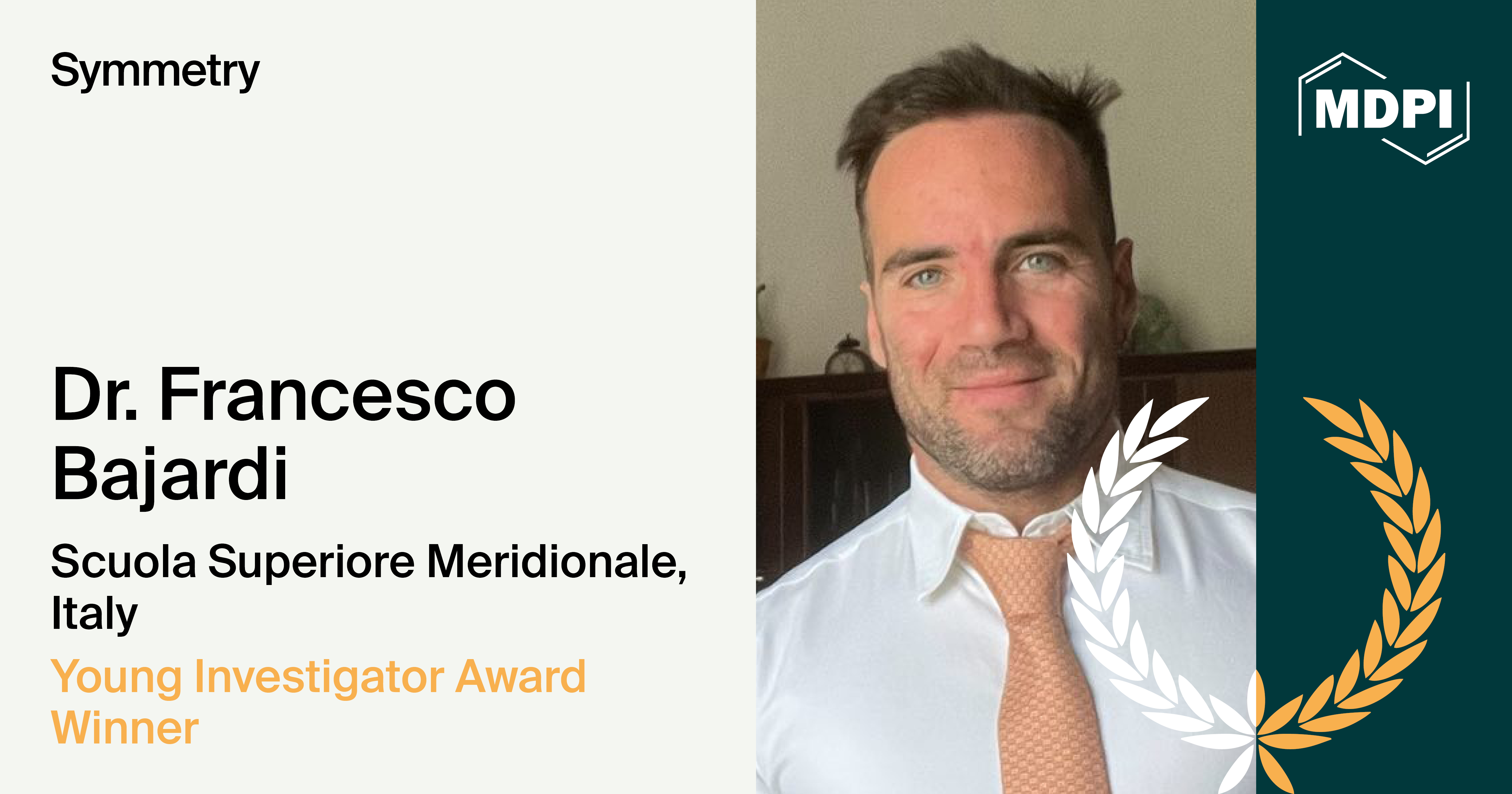
Interview with Dr. Francesco Bajardi—Winner of the Symmetry 2024 Young Investigator Award
We are pleased to announce that Dr. Francesco Bajardi, a researcher at Scuola Superiore Meridionale (SSM), Naples, Italy, has won the Symmetry 2024 Young Investigator Award. As the winner, he will receive an honorarium of CHF 2000, an electronic certificate, and a voucher to fully cover the article processing fees valid for one year.
Dr. Bajardi is a researcher at Scuola Superiore Meridionale (SSM) in Naples, Italy. He received his B.Sc. in Physics from the University of Palermo, Italy, in 2016; his M.Sc. in Theoretical Physics from the same university in 2017; and his Ph.D. in Theoretical Physics from the University of Naples "Federico II," Italy, in 2021. His research focuses on the study of symmetries in extended and alternative theories of gravity, with applications to astrophysics and cosmology. Over the past five years, Dr. Bajardi has authored more than 40 peer-reviewed scientific articles, contributing to theories of gravity and cosmology, with a focus on uncovering symmetries to reconstruct cosmic history at both classical and quantum levels. Beyond academic articles, he has also published three books, including Noether Symmetries in Theories of Gravity (Cambridge Monographs on Mathematical Physics) with Cambridge University Press and a textbook on mechanics and electromagnetism with EdiSES, a leading Italian academic publisher. Dr. Bajardi's work exemplifies excellence in theoretical physics, and this award recognizes his outstanding contributions to the field.
The following text comprises a short Q&A with Dr. Bajardi, who shared his vision for the journal as well as his views on research and open access publishing:
1. How did you first learn about the Symmetry journal, and what are your impressions of it?
I first encountered Symmetry in 2019, shortly after starting my Ph.D., when one of my early research papers was published in a Special Issue of the journal. Since then, I have published several other papers in Symmetry and even had the opportunity to serve as a Guest Editor for a Special Issue on Gravitational Theories. Given that my research focuses on symmetry (I have published papers and a book on the topic) I felt my work aligned well with the journal’s mission, which motivated me to apply for the Young Investigator Award.
2. Could you briefly introduce your current research focus and share some recent progress in your work?
My research centers on modified gravity from a theoretical perspective, exploring both its fundamental aspects and potential applications, such as in cosmology. I study theories that address cosmological and astrophysical observations while also tackling conceptual issues in gravitational physics. Symmetry plays a pivotal role in my work, helping me select viable models and simplify complex systems.
3. What was the biggest challenge you faced during your research?
Like many scientists, my journey has been marked by challenges, especially after completing my Ph.D. Research opportunities for recent graduates can be limited, but my advice is to persevere and keep pushing forward, even in the face of setbacks.
4. As a recipient of this Young Investigator Award, what advice or insights would you share with contemporary young researchers?
As a young researcher myself, I hesitate to offer advice, but I can share my perspective. What I find most rewarding is working on topics that genuinely interest me. However, research is often driven by the need to publish. Striking a balance between passion-driven projects and strategically aligned work is key to both personal fulfillment and career growth.
5. What are your thoughts on the impact of Open Access (OA) publishing on authors in academia?
Open Access is a valuable model that fosters the free dissemination of scientific knowledge. However, the associated costs pose a significant challenge, especially for early career scholars with limited funding. This is an issue the academic community must continue to address.
6. Can you share your acceptance speech?
I am deeply grateful to the committee for this honor. I also want to thank my Ph.D. supervisors, Prof. Carlo Altucci and Prof. Salvatore Capozziello, for their unwavering support and for encouraging me to pursue my ideas from the very beginning.